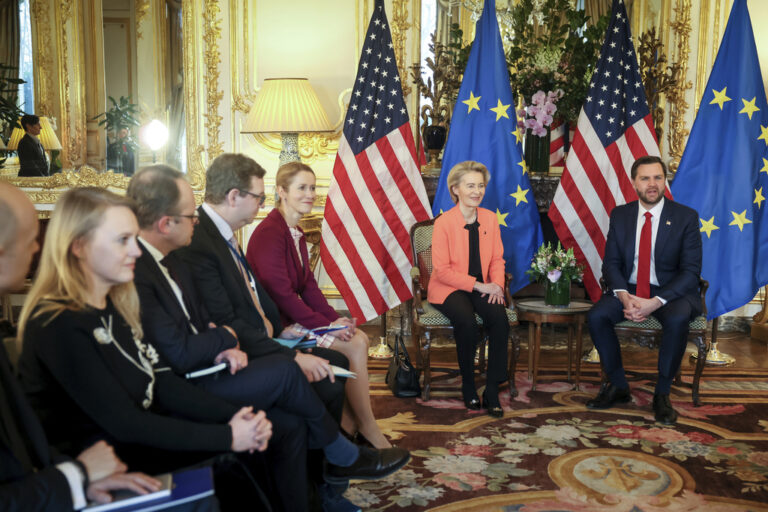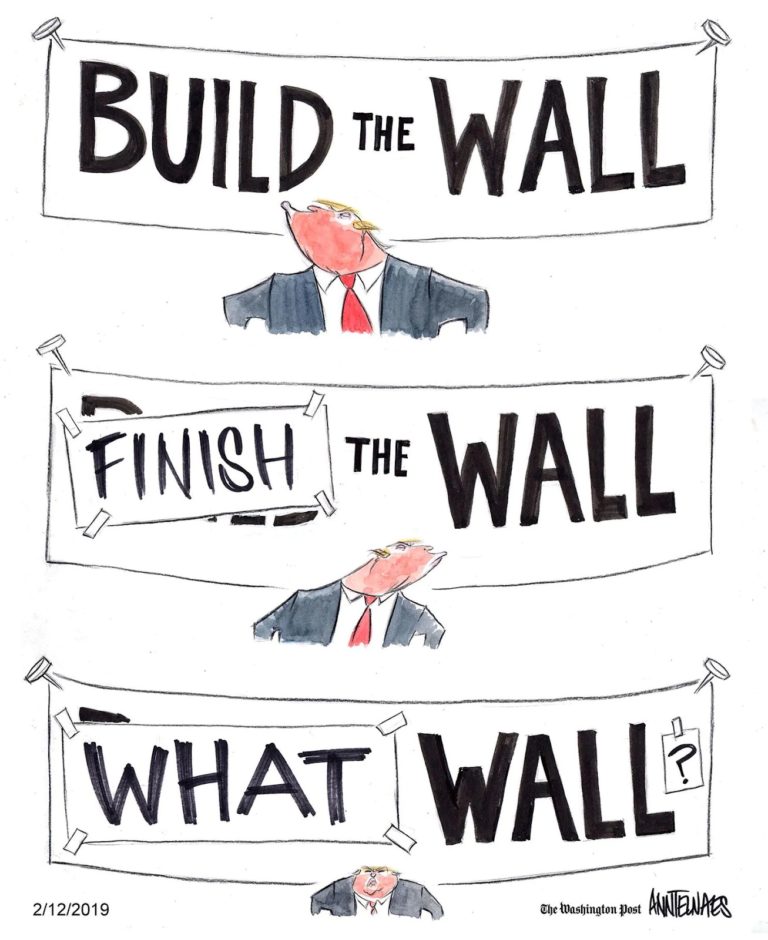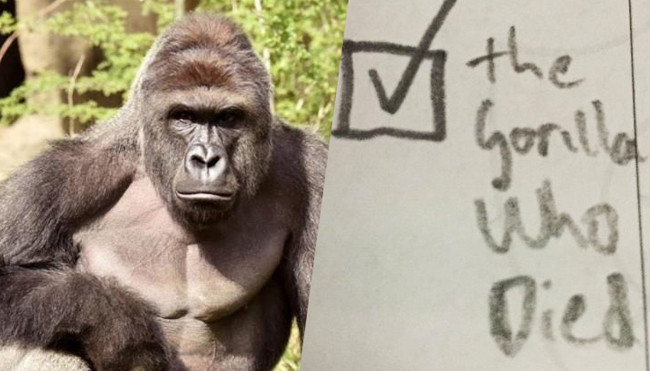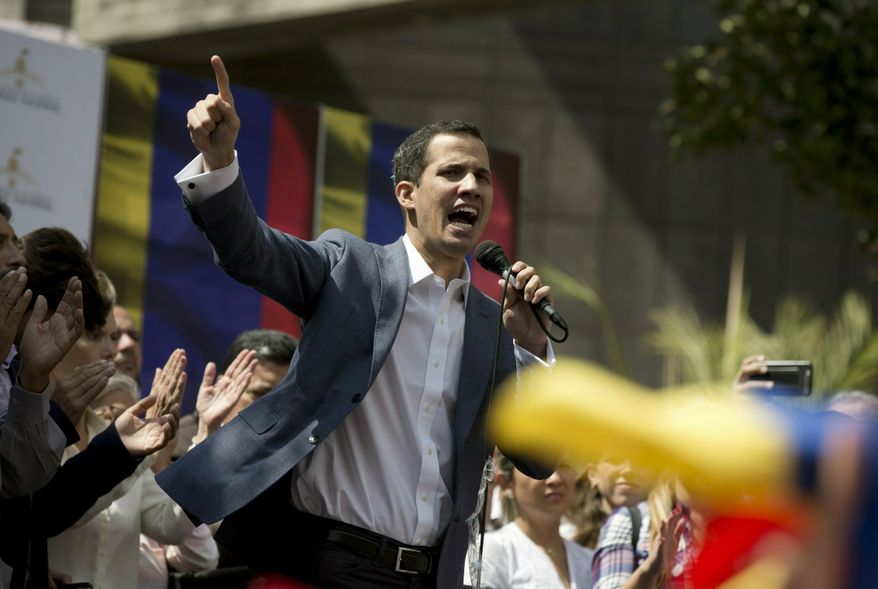
In recent weeks, more than 60 countries have come to recognize President of the National Assembly Juan Guaidó as the Interim President of Venezuela, following the U.S.’s initial recognition of Guaidó. This comes as support for the regime of President Nicolás Maduro crumbles amidst political, economic, and social upheaval. The U.S. made the right move in recognizing Guaidó over Maduro. Now, the U.S. just needs to let the Venezuelan people be the ones to remove the dictatorship instead of the U.S. military.
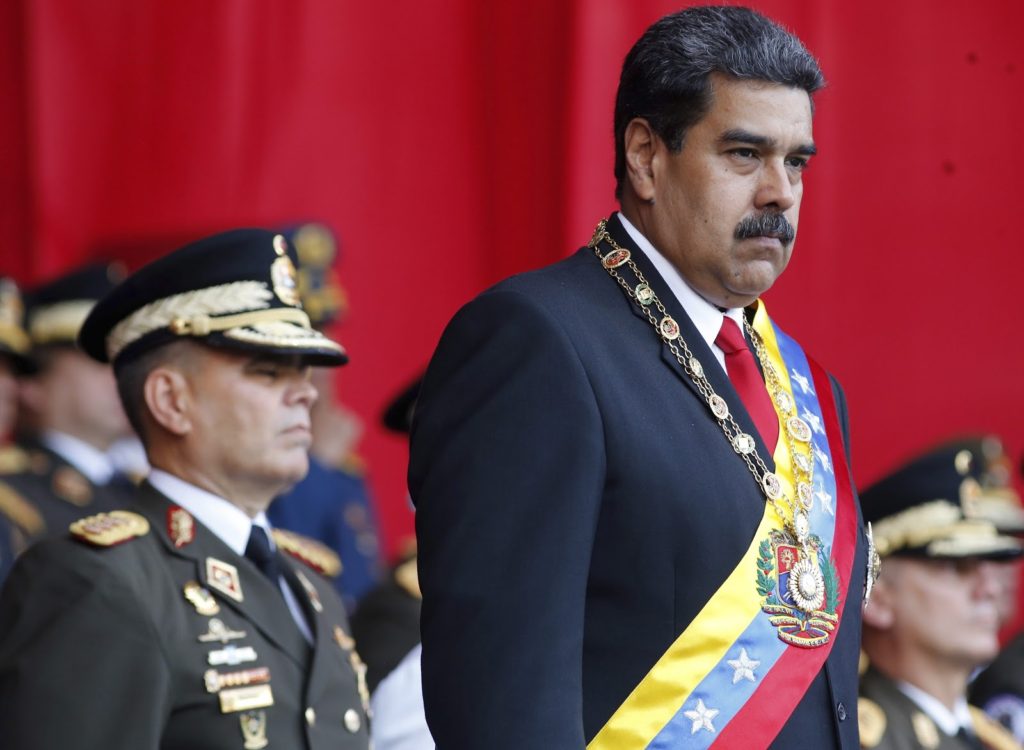
This weekend, I corresponded with Jorge Jraissati about this topic. He is one of the most influential young political leaders of Venezuela. As President of Venezuelan Alliance, Jorge has been crucial in organizing the international community and its efforts to achieve a political change in Venezuela. Academically, Jorge graduated in Economics from the Wilkes Honors College at FAU. Moreover, Jorge is an alumnus of the Hoover Institution at Stanford and a visiting fellow of the Abigail Adams Institute at Harvard University. According to Jorge, the Venezuelan Alliance is “committed to raising awareness about the importance of free and democratic institutions by educating the public about Venezuela’s repressive regime.”

DB: What are your thoughts on the U.S. and the international community recognising Guaidó as the legitimate leader of Venezuela?
JJ: The U.S. and the other 60-plus countries that supported Guaidó as Interim President of Venezuela made the right decision. It’s crucial for the stability of the Western hemisphere to support our efforts to recover Venezuela’s democracy. Overall, Venezuela became in many ways a failed state. Criminal groups control many areas of Venezuela. As a result, Venezuela is the most violent nation in the Western hemisphere in terms of homicides per capita. Western democratic states are supporting a political transition, as they know that a democratic, constitutional, and peaceful transition is essential to avoid a civil war in Venezuela. We have the opportunity to accomplish that today. If we don’t fight for Venezuela today, there is no tomorrow.
DB: Would you say the U.S. had the right to recognize the opposition leader of a foreign nation, even if that nation is facing such a humanitarian crisis?
JJ: The U.S. made the right decision by supporting Guaidó as interim President of Venezuela. Maduro’s unwillingness to hold elections last year gave Guaidó the constitutional authority to become interim president according to article 233 of our constitution. Moreover, Maduro’s dictatorial policies and human right violations transformed Venezuela into a failed state in the middle of our continent. This represents a real threat to the stability of our region. In the last couple of years, more than three million Venezuelans have fled the nation, as Maduro’s policies have destroyed our economy. In 2018, Venezuela had an inflation rate of more than one million percent. As a result, we have 87 percent of Venezuelans in poverty, and 61 percent in extreme poverty.
Moreover, Maduro has deep connections with terrorist groups such as Hezbollah, as well as authoritarian states such as Iran and Turkey. Overall, it is extremely important for the U.S., and the Western hemisphere in general, to help Venezuelans recover their political and economic freedoms. In Venezuela, we have been fighting for our freedom for years. However, as Maduro’s repressive system have incarcerated and even killed opposition activist[s], we have not been able to achieve a political transition in Venezuela. This is why it is extremely important for us the support of the international community, especially the U.S. We need international N.G.O.s [nongovernmental organizations], think tanks, media outlets, and governments to support our cause. It is crucial for us that they pressure the Maduro regime by using diplomatic and non-diplomatic methods.
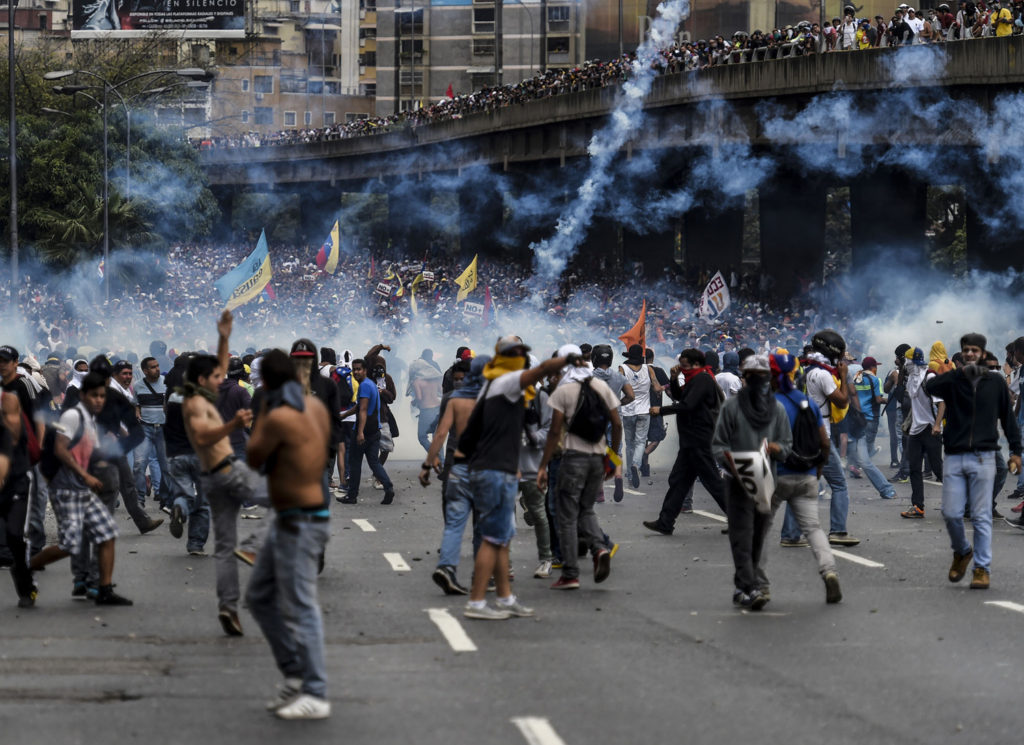
Violent protests in Venezuela. Courtesy of Agence France-Presse.
DB: Seeing as though since about 1999—when President Hugo Chávez was first elected—Venezuela’s economy has for the large part been centrally planned and more recently the poverty rate has skyrocketed, what do you have to say about economic reform if Maduro is replaced?
JJ: In Venezuela, we are committed to reigniting our economy. We believe a strong economy is the foundation of a successful political transition from authoritarianism towards liberal democracy. Because of this, we are presenting to the country an economic reform called “plan país” [“country plan” in English], in which we are committed to growing our economy by implementing policies such as monetary stability, fiscal responsibility, strong property rights, free trade, among others. In the short run, we have a humanitarian aid program to end immediately Venezuela’s humanitarian crisis. Then, with our economic reforms, we will stimulate existing but harmed industries, increase oil production, incentivize F.D.I. [foreign direct investment], and overall, create the conditions so the private sector can create decent and well-paid jobs for all Venezuelans.
Douglas Braff
Douglas Braff is a copy editor at “In the Zeitgeist” and a senior at NYU who studies History and Creative Writing. Hailing from Long Island, New York, he hopes to potentially have a career in law, education, politics, or film acting. Doug has interned in the US Senate and at the Meridian International Center. Outside of school, Doug loves to act, write creatively, listen to music, walk around the city, and visit art museums. Follow Doug on Twitter.

